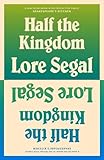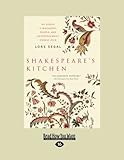 Anyone who has ever passed time in a hospital will find something recognizable and true in Lore Segal’s new novel, Half The Kingdom. Outside of Aleksandar Hemon’s heartbreaking essay, “The Aquarium,” I don’t think I’ve read anything that so accurately captures the otherworldly experience of hospital life, where catastrophic situations are so frequent they become banal, or worse, bureaucratic. And yet there is nothing heartrending about Half The Kingdom, which unlike Hemon’s essay, does not focus on life’s tragic, unexpected brushes with disease and death. Instead, it’s a comic novel about old age.
Anyone who has ever passed time in a hospital will find something recognizable and true in Lore Segal’s new novel, Half The Kingdom. Outside of Aleksandar Hemon’s heartbreaking essay, “The Aquarium,” I don’t think I’ve read anything that so accurately captures the otherworldly experience of hospital life, where catastrophic situations are so frequent they become banal, or worse, bureaucratic. And yet there is nothing heartrending about Half The Kingdom, which unlike Hemon’s essay, does not focus on life’s tragic, unexpected brushes with disease and death. Instead, it’s a comic novel about old age.
Aging is not for everyone. Early in her novel, Segal offers up the suicide of an elderly woman, a case that reverberates throughout the book. 75-year-old Lucy Friedgold witnesses the death: she just happens to be looking out the window of her new office when a body falls past. After calling 911, Lucy stares down into the courtyard, where the woman’s body has come to rest; she’s fascinated by the odd interlude before the rescue workers arrive, and before the death registers as something real. Lucy, a poet, writes a short story about the dead woman, imagining her to be unhappy in heaven, where she suffers bouts of social anxiety and wishes fervently for her sister, still alive on earth, to join her. The problem is that heaven is full of dead people whose names she can’t remember, and her sister was always better with names. Lucy reads the story aloud to friends, hurt when they don’t respond with praise and disbelieving when they do. She’s as neurotic as she was when she was younger, and as helplessly creative.

 If you find that funny (and I do) then you will likely enjoy this book, which wanders in and out of waiting rooms in a Manhattan hospital, eavesdropping on the conversations and thoughts of aging patients and their attending doctors, families, and friends. The narrative is framed by the particular case of Joe Bernstine, who is pronounced terminal on page two. Joe accepts his fate cheerfully — his smile so ever – present that one character describes it as “the smile in the bone” — and devotes the remaining weeks of his life to researching a peculiar encyclopedia, The Compendium of End-of-World Scenarios. Readers of Segal’s previous fictions may recognize Joe Bernstine from her 2008 novel Shakespeare’s Kitchen, in which Joe is the director of a Connecticut think tank, the Concordance Center. The Center is referenced throughout Half The Kingdom and as an admirer of Shakespeare’s Kitchen, Joe’s retirement felt disconcertingly real, and a little sad. Ilka Weiss, another character from Shakespeare’s Kitchen, (as well as the ingénue of Segal’s second novel, Her First American), also appears in Half The Kingdom, this time as a happy grandmother who is beginning to forget who she is. In a 2011 interview, Segal described Half The Kingdom as “a story of how we outlive our lives,” but it might also be described as a novel of characters who have outlived their books.
If you find that funny (and I do) then you will likely enjoy this book, which wanders in and out of waiting rooms in a Manhattan hospital, eavesdropping on the conversations and thoughts of aging patients and their attending doctors, families, and friends. The narrative is framed by the particular case of Joe Bernstine, who is pronounced terminal on page two. Joe accepts his fate cheerfully — his smile so ever – present that one character describes it as “the smile in the bone” — and devotes the remaining weeks of his life to researching a peculiar encyclopedia, The Compendium of End-of-World Scenarios. Readers of Segal’s previous fictions may recognize Joe Bernstine from her 2008 novel Shakespeare’s Kitchen, in which Joe is the director of a Connecticut think tank, the Concordance Center. The Center is referenced throughout Half The Kingdom and as an admirer of Shakespeare’s Kitchen, Joe’s retirement felt disconcertingly real, and a little sad. Ilka Weiss, another character from Shakespeare’s Kitchen, (as well as the ingénue of Segal’s second novel, Her First American), also appears in Half The Kingdom, this time as a happy grandmother who is beginning to forget who she is. In a 2011 interview, Segal described Half The Kingdom as “a story of how we outlive our lives,” but it might also be described as a novel of characters who have outlived their books.
Most of the patients in Segal’s novel are suffering from a strange, sudden-onset form of Alzheimer’s that may or may not be contagious, and which may or may not be epidemic. (Or, as Joe Bernstine postulates, may or may not be a secret terrorist plot to keep elderly Americans “indefinitely alive”). Segal mines the disease for it metaphorical possibilities: it’s not only that her characters are forgetting the world, it’s that the world is forgetting them, and the world they came from. In the midst of a medical interview, one patient is asked if she can remember where she lives. She replies with her New York address and her birthplace: “Pojorny before World War One, when it was still Hungary. The Slovaks called it Bratislava. In German it’s Pressburg.” Later in the interview, when the same character is asked for her occupation, she replies that the Nazis marched into Bratislava in March of 1939. The woman is a survivor of war and exile, and as it turns out, is one of the only patients who does not “catch” Alzheimer’s. But Segal does not paint her as brave or even especially lucky; instead, she’s the one person who might have benefited from increased memory loss. As one doctor describes her, she’s the patient whose “memory of a lifetime of rejection and humiliation [is] perfectly restored.”
It’s these moments of dark comedy that keep Half The Kingdom from becoming depressing, not that there was any real danger of that in Segal’s writing. She takes heavy material and makes it light; where another writer might lament the fact that sweet children grow up to be sour adults, or that families often behave rudely in the moments when it is most important to behave kindly, Segal sees a comic situation. But the bitterest irony she explores in Half The Kingdom is how modern medicine is trapped within a bureaucracy that is torture for an able-bodied person to navigate, let alone someone who is sick and vulnerable.
The novel’s title is derived from a fairy tale, read by the granddaughter of one of the patients. It’s a reference to inheritance, and also, I think, to happiness — that most elusive gift. The happiest characters in the novel are Joe Bernstine and his wife, Jenny, and the word “kingdom” recurs in the novel’s final pages, when Jenny is checked into the hospital and diagnosed with “bipolar depression stuck in a permanent stage of euphoria.” Her symptoms? She’s filled with a sense of joy she can’t quite explain:
“I love Joe, I love my Beth, and I love it when they’ve gone to the office and I have my own kingdom all to myself.” Jenny smiles. She is embarrassed. “I mean I like washing up the breakfast dishes with the sink filled with sunlight. Moses had to strike a rock to water Israel, but a turn of my wrist and water flows cold, it flows hot.”
Happiness, Segal seems to suggest, comes as naturally at the end of life as despair, and joy abounds in this novel about people waiting for death.








